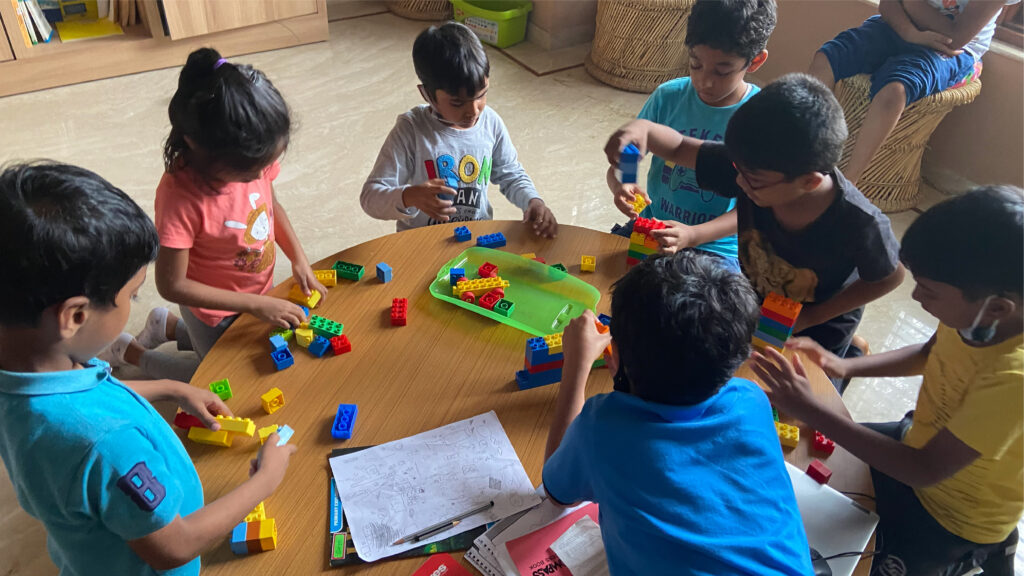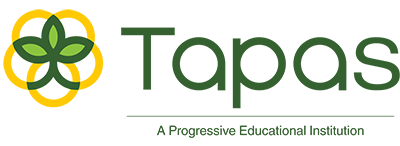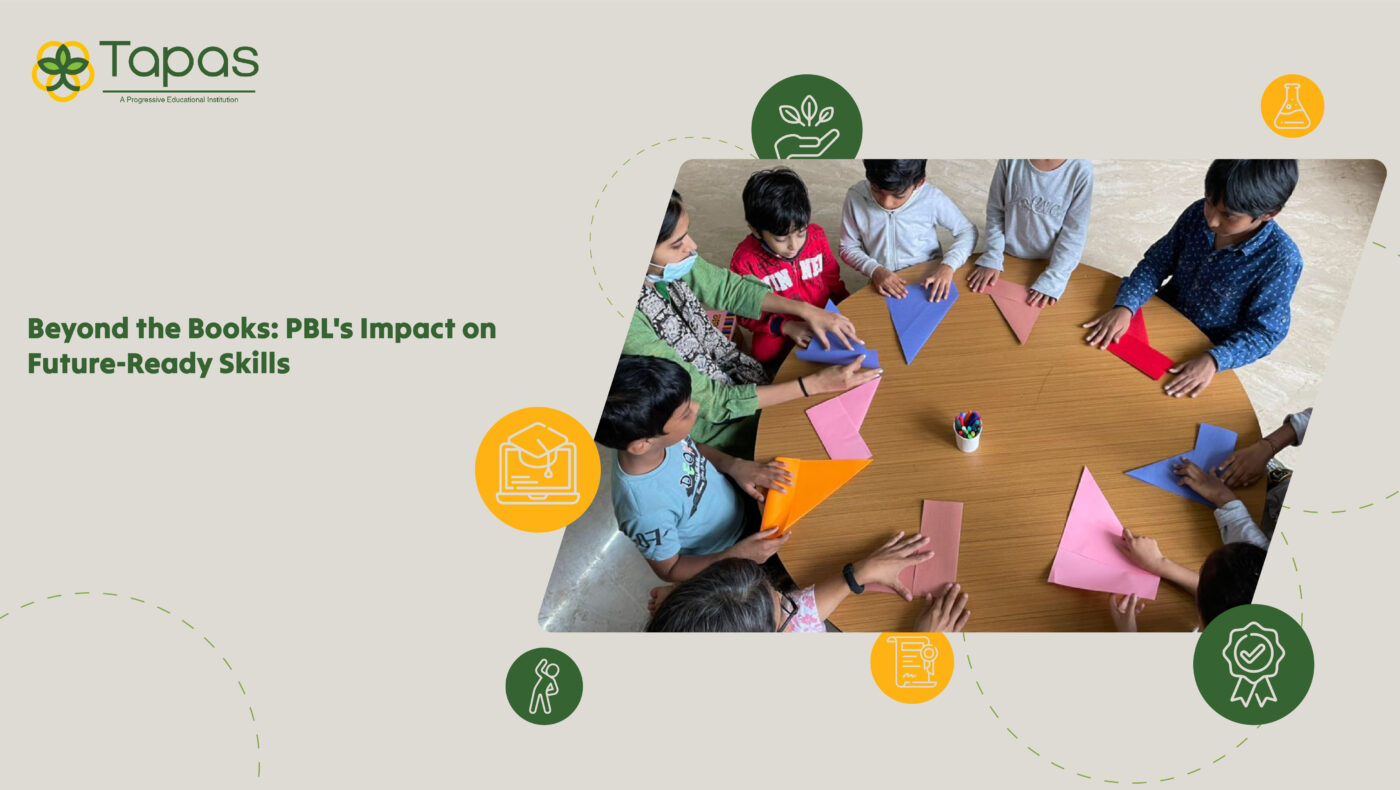Beyond the Books: PBL’s Impact on Future-Ready Skills
In the ever-evolving educational landscape, the 21st-century workforce presents new challenges and demands that require a radical shift in teaching and learning methodologies. Central to this transformation is the emphasis on ‘Creativity in Education’, a key ingredient in preparing students for a future marked by rapid technological advancements and unpredictable market trends. Traditional education systems, often criticized for their rigid structures, are increasingly being supplemented by innovative approaches that prioritize creative thinking, adaptability, and problem-solving skills.
At the heart of this educational revolution is TAPAS Education, a pioneering institution committed to redefining learning paradigms. Recognizing the critical role of creativity in education, TAPAS Education has developed a curriculum that is not only academically rigorous but also rich in opportunities for creative exploration and practical application. By integrating cutting-edge technologies and adopting a student-centred approach, TAPAS Education ensures that learners are not just well-informed but are also equipped to think creatively and adapt to the ever-changing demands of the modern workplace. Explore more about how TAPAS Education is shaping the future of learning at https://tapaseducation.com/, where education meets innovation for a brighter, more creative future.

What is Project-Based Learning (PBL)?
Project-Based Learning (PBL) is an educational approach that goes beyond traditional classroom boundaries, emphasizing real-world engagement and problem-solving. Centered around ‘PBL and Skill Development’, this method involves students actively exploring challenging questions or problems, resulting in a deeper understanding and retention of knowledge. PBL encourages learners to become investigators and decision-makers, using critical thinking and creativity to find solutions. This approach not only enriches academic learning but also prepares students for the complexities of modern life and work, making them more adaptable, proficient in collaboration, and innovative in their thinking.
At TAPAS Education, the adoption of PBL is a testament to their commitment to ‘Creativity in Education’, and they stand out through various innovative practices:
- Interdisciplinary Projects: Integrating multiple subjects to provide a holistic learning experience.
- Real-World Connections: Aligning projects with real-world scenarios to enhance relevance and applicability.
- Collaborative Learning Environment: Encouraging teamwork, promoting diverse perspectives, and fostering a community of learners.
- Technology Integration: Utilizing the latest technological tools to enhance learning and project implementation.
- Customized Learning Paths: Allowing students to explore their interests and strengths within the framework of PBL.
- Continuous Feedback and Reflection: Providing students with ongoing feedback to refine their skills and thought processes.
- Focus on Critical Thinking and Problem Solving: Emphasizing these skills in every project to prepare students for future challenges.
- Professional Partnerships: Collaborating with industry professionals to provide insights and real-world experiences.
Through these practices, TAPAS Education ensures that PBL is not just a teaching method but a gateway to nurturing a generation that values creativity and innovation in their educational journey.
Key Future-Ready Skills Fostered by PBL
Discussing Critical Future-Ready Skills:
- Problem-Solving: Essential for navigating complex challenges; involves analyzing situations, developing solutions, and making decisions.
- Critical Thinking: Involves questioning assumptions, evaluating evidence, and synthesizing information to form reasoned judgments.
- Collaboration: Key for teamwork; includes effective communication, conflict resolution, and joint effort towards common goals.
- Creativity: Crucial for innovation; entails thinking outside the box, generating original ideas, and adapting to new situations.
Examples of TAPAS Education’s PBL Approach in Developing These Skills:
- Problem-Solving through PBL: TAPAS Education uses real-world projects where students identify problems, research solutions, and implement strategies, thereby enhancing their problem-solving capabilities. For example, in a project about environmental sustainability, students might develop a recycling program, requiring them to identify logistical challenges and devise practical solutions.
- Critical Thinking in PBL: Students engage in projects requiring them to analyze data, evaluate sources, and form conclusions. A project on historical events, for instance, might have students examining primary sources, leading to a deeper understanding and critical analysis of historical narratives.
- Collaboration in PBL: Projects often require teamwork, where students must communicate effectively, delegate tasks, and work cooperatively. In a robotics project, students might divide roles such as design, coding, and assembly, fostering a collaborative environment.
- Creativity through PBL: TAPAS Education encourages creative solutions in projects. For example, in a project to design a marketing campaign, students might explore innovative advertising techniques, demonstrating creativity in conceptualizing and executing their ideas.
Real-World Application: PBL’s Practical Approach
Learning in a real-world context, especially through an approach that emphasizes ‘Critical Thinking’, offers numerous practical benefits that are essential for students’ development and future success:
- Enhanced Problem-Solving Skills: Students learn to apply critical thinking to solve real-world problems, which is more effective than theoretical learning. This prepares them for real-life challenges where solutions are not always clear-cut.
- Improved Decision Making: Exposure to real-world scenarios enhances students’ ability to make informed decisions. They learn to weigh evidence, consider different perspectives, and make choices based on logical reasoning.
- Greater Engagement and Motivation: Learning in a context that students find relevant and meaningful increases their engagement and motivation. This leads to a deeper understanding and better retention of knowledge.
- Development of Soft Skills: Real-world learning environments help students develop crucial soft skills like communication, teamwork, and adaptability, which are highly valued in the workplace.
- Application of Knowledge to New Situations: Critical thinking in a real-world context enables students to transfer and apply their learning to new and diverse situations, a key skill in our rapidly changing world.
- Better Understanding of the World: Students gain a clearer understanding of how the world works, including economic, social, and environmental systems, making them more informed and responsible citizens.
- Preparation for Future Careers: This approach prepares students for future careers by giving them a taste of real-world challenges and the skills needed to navigate them effectively.
- Encouragement of Lifelong Learning: Engaging with real-world problems fosters a love for learning and a curiosity that extends beyond the classroom, encouraging lifelong learning.
In summary, incorporating critical thinking into real-world learning contexts not only enriches academic understanding but also equips students with the practical skills and mindsets necessary to thrive in the modern world.
Here is a real-time example of the same:
In the dynamic sphere of education, fostering creativity and equipping students with future-ready skills have become paramount. The exploration of habitats through a hands-on project like creating insect hotels exemplifies this approach, merging environmental science with imaginative thinking and problem-solving.
Students embarked on a journey to understand the critical elements of a good habitat: access to food, water, and safety, along with other survival necessities. This understanding was not just theoretical; they applied it by constructing insect hotels from natural materials like twigs, sticks, threads, and dry leaves. This activity not only honed their creativity but also their ability to work collaboratively, think critically about the needs of other living beings, and develop empathy.
The design of these insect hotels required students to think like engineers and artists, ensuring these structures were not only functional—providing shelter and food (as insects could consume the provided materials)—but also aesthetically pleasing. The colour and composition of the hotels were strategically planned to offer camouflage, adding another layer of safety for the insects. This aspect of the project emphasized the importance of aesthetics in practical applications, nurturing an appreciation for beauty in functionality.
Furthermore, the project sparked discussions on food chains and ecosystems, highlighting the interconnectedness of species. Students theorized how attracting insects could also attract their predators, like lizards or frogs, showcasing an understanding of ecological relationships. However, they also recognized the limitations of their habitat designs, such as the absence of water sources necessary for amphibians, demonstrating critical thinking about the complexities of habitat requirements.
This project underscores the necessity of creativity in education, preparing students with the skills to innovate, solve complex problems, and adapt to future challenges. By engaging in such multidimensional learning experiences, students not only acquire knowledge but also learn to apply it in meaningful, creative, and impactful ways, laying the groundwork for a future where they can thrive and contribute to solving the world’s complex problems.
Technology Integration in PBL
The role of technology in enhancing ‘PBL and Skill Development’ is pivotal. It offers diverse tools and platforms that enrich the learning experience, making it more interactive, accessible, and efficient. Technology facilitates research, collaboration, and presentation in PBL, allowing for a more dynamic and engaging educational process. It enables students to access vast resources, connect with experts worldwide, and use digital tools to create and innovate, thereby deepening their learning and skill development.
TAPAS Education integrates technology into its PBL framework to foster ‘Critical Thinking’ among students. They employ digital platforms for research and collaboration, allowing students to explore various perspectives and resources. Interactive tools like simulations and educational software are used to create realistic project scenarios, enhancing students’ analytical skills. Online forums and virtual classrooms enable students to discuss and refine their ideas, promoting critical engagement with content. By leveraging technology, TAPAS Education ensures that PBL is not only about knowledge acquisition but also about developing critical thinking and other future-ready skills in an increasingly digital world.
Preparing Students for an Unpredictable Future
Project-Based Learning (PBL) at TAPAS Education, with a strong focus on ‘Problem-Solving’, prepares students not just for specific careers but also for adaptability and lifelong learning in several key ways:
- Diverse Skill Set: PBL exposes students to a variety of skills beyond mere academic knowledge. They learn how to research, analyze, communicate, and collaborate effectively, which are essential skills in any career path.
- Adaptability: By engaging in diverse and dynamic projects, students learn to adapt to new challenges and environments. This adaptability is crucial in a rapidly changing job market where the ability to pivot and learn new skills is valued.
- Critical Thinking and Problem-Solving: PBL at TAPAS Education emphasizes critical thinking and problem-solving. Students learn to approach problems methodically, think creatively to find solutions, and evaluate the effectiveness of their solutions, a process that is invaluable in any professional setting.
- Self-Directed Learning: PBL encourages students to take charge of their learning journey. This self-directed learning fosters a sense of independence and confidence in their abilities to acquire new knowledge and skills, essential for lifelong learning.
- Real-World Relevance: Projects often mirror real-world scenarios, providing students with a practical understanding of how their skills can be applied in various career paths. This relevance helps them see the connection between their education and their future in the workforce.
- Emotional Intelligence and Resilience: Working on complex projects, often in teams, students develop emotional intelligence and resilience. These are critical attributes for navigating the ups and downs of any career.
- Continuous Learning and Curiosity: PBL nurtures a natural curiosity and a love for learning. Students who are curious and passionate about learning are more likely to pursue continuous education and development throughout their careers.
In summary, TAPAS Education’s PBL approach, centered around problem-solving, equips students with a broad range of skills and attributes, making them not only ready for specific careers but also adaptable and committed to lifelong learning.
Conclusion
In summary, TAPAS Education’s implementation of Project-Based Learning (PBL) is a transformative approach that prepares students for the dynamic demands of the 21st-century workforce. Key points include:
- Focus on Future-Ready Skills: TAPAS Education emphasizes critical skills like problem-solving, critical thinking, collaboration, and creativity, essential for success in any career.
- Real-World Application: PBL’s practical approach connects learning with real-world scenarios, making education relevant and engaging.
- Technology Integration: The use of technology in PBL at TAPAS Education enhances learning experiences and prepares students for a digital future.
- Preparation Beyond Specific Careers: PBL at TAPAS Education equips students with adaptability and lifelong learning skills, ensuring they are ready for various career paths and life challenges.
Discover how PBL at TAPAS Education can revolutionize your educational experience and prepare you for a successful future. Visit https://tapaseducation.com/ to explore more about their innovative approach and how it can benefit you or your child in developing essential skills for the modern world. Join us in shaping a brighter, more adaptable, and creative future.
Links
https://www.powerschool.com/blog/project-based-learning-benefits-examples-and-resources/
https://www.edutopia.org/project-based-learning-guide-resources
https://www.theconsortiumforpubliceducation.org/resource/project-based-learning-resources-pbl/

